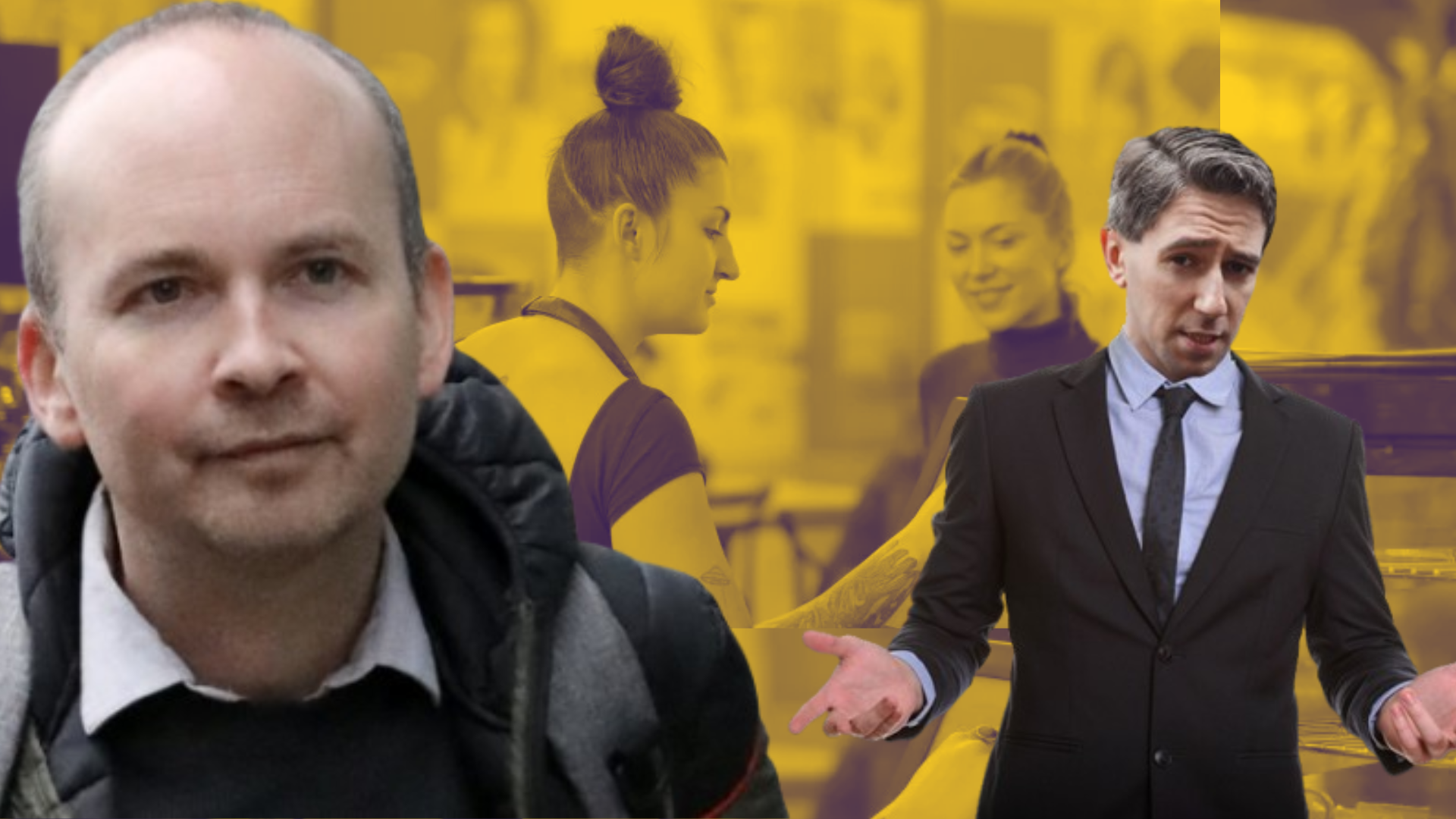On International Workers’ Day, Paul Murphy TD has accused Taoiseach Simon Harris of using “illegal, discriminatory justifications for paying some workers less than the minimum wage”.
Speaking at Leaders’ Questions, Paul Murphy challenged the government’s refusal to implement the proposals from People Before Profit and the Low Pay Commission to abolish sub-minimum wage rates for younger workers, saying it amounted to “discrimination” and was designed to suppress wages across the economy.
Under current law, 19-year-olds can be paid 10% less than the minimum wage, 18-year-olds 20% less, and 17-year-olds and younger 30% less – earning just €9.45 an hour.
The Taoiseach justified this situation, saying many of the companies which pay sub-minimum wage rates to young workers are “to the pin of their collar”. He argued that the rights of young people must be balanced against the need to ensure “the businesses they are working with can continue to keep their doors open”
However, in a statement after the debate, the People Before Profit TD argued the Taoiseach’s justification is “completely immoral, and most likely illegal”, pointing to the Low Pay Commission’s report that said “under European law, the pursuance of cost savings for employers does not amount to a legitimate aim”.
Paul Murphy TD said “The Taoiseach is trying to justify the unjustifiable, using arguments the Low Pay Commission have already explained can are not legitimate under EU law. You can’t simply allow one group of workers to be paid less than the minimum wage so that the bosses can save money; not only is that immoral, it is illegal according to the government’s own legal advice. Either the Taoiseach hasn’t read the report, or he has and he simply doesn’t care about the legal rights of young workers.”
Challenging the Taoiseach in the Dáil during Leaders' Questions, Deputy Murphy said:
“Around 15,000 young people in this country are legally paid less than the minimum wage. It is blatant discrimination for young workers doing the same work as their colleagues. When they go to pay for their groceries, they don't get 30% off the bill. If a 19-year-old is renting, they can’t take 10% off the rent.” Murphy pointed out.
In 2023, a People Before Profit bill to end sub-minimum wages was agreed by the Dáil, but with a 1 year delay inserted. In March 2024, the government’s Low Pay Commission also recommended the abolition of sub-minimum youth wage rates. But the government then delayed the move further and commissioned an ‘Economic Impact Assessment’, which is due in June 2025. However, earlier this week the Minister announced that the government have agreed to defer any change to sub-minimum youth rates.
“You are going to continue with super-exploitation of young people,” the People Before Profit TD said to the Taoiseach. “Even after the last Dáil voted to end it. Even after the Low Pay Commission recommended that it be done away with. Before the economic impact assessment you commissioned has even been completed.”
Murphy also referenced comments from employer group ISME, which told the Oireachtas that businesses that raise youth wages could have a “spillover” effect on the wider workforce. The socialist TD argued this showed the sub-minimum wage rates was therefore “about wage suppression for all workers”.
Watch the full exchange and hear People Before Profit's arguments for Young Workers here: https://www.youtube.com/live/ygZpQDgd3HE?si=mJcq4Gy4pJoKUswi
Special Note:
“However, a problem with the argument to maintain sub-minimum youth rates to avoid increasing business costs is that under the recently introduced EU Directive on Adequate Minimum Wages, sub-minimum rates need to be in pursuit of a “legitimate aim”. Legal advice received by the Commission has informed it that under European law, the pursuance of cost savings for employers does not amount to a legitimate aim.”
pg 38
https://assets.gov.ie/static/documents/report-on-sub-minimum-rates-of-the-national-minimum-wage.pdf
